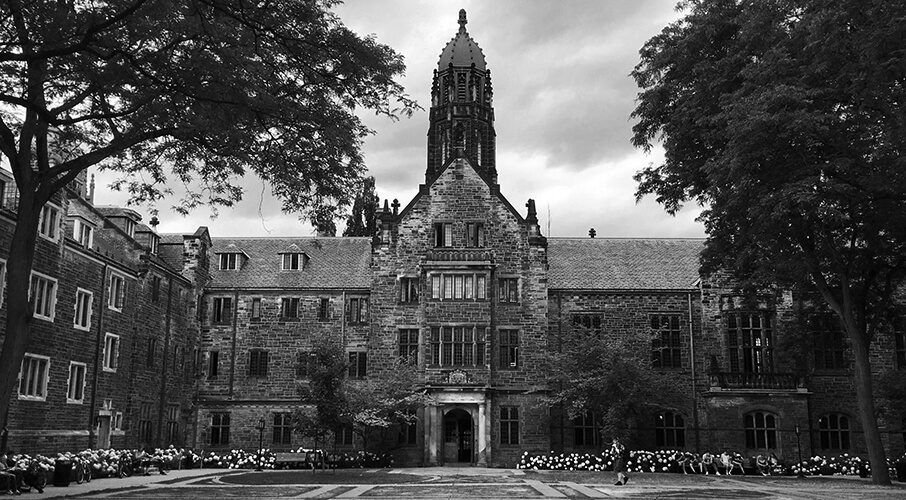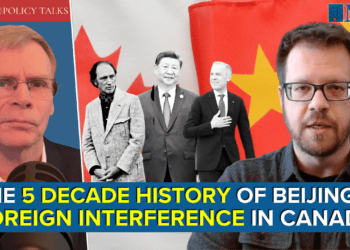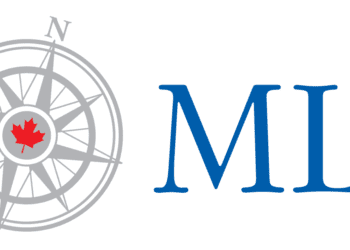 Universities shouldn’t be allowed to create systematically unfair and discriminatory institutions under the guise of “equity,” writes Chris Dummitt.
Universities shouldn’t be allowed to create systematically unfair and discriminatory institutions under the guise of “equity,” writes Chris Dummitt.
By Chris Dummitt, November 22, 2021
Something is awry in the rarified world of academic hiring in Canada.
In 2021, a typical job advertisement for a professor in the social sciences in Canada still contains basic requirements – educational qualifications like a PhD and research and teaching excellence. But these longstanding prerequisites are now buried in a jumble of political statements, virtue signals, land acknowledgements, and thinly disguised ideological manifestoes demanding commitment to vague ideas of justice, progress and “equity, diversity and inclusion” (EDI). Universities are also increasingly asking job candidates to provide statements demonstrating their adherence to the notion of equity – and these statements are part of the criteria on which a candidate will be judged.
The positive take on these developments is that they will ensure marginalized groups are better represented in academia. And who could disagree with that? If there really are racist and discriminatory practices preventing certain types of people from being hired, then let’s get rid of them.
If only it were so simple.
In reality, what these kinds of job advertisements and ideological litmus tests do is institutionalize specific political beliefs as job criteria.
This is a serious problem. Why? For example, an aspiring scholar could be profoundly committed to a world free of discrimination – but might also take issue with the concept of equity, or at least with how it is often deemed to be determinative in any debate. Equity activists almost always assert that all statistical disparities must be caused by discrimination. Are women underrepresented in physics? Must be discrimination. Not enough Indigenous film scholars? That’s discrimination too.
Yet an open-minded scholar should really treat a statistical disparity as an invitation to investigate. Statistical disparities certainly might be caused by discrimination. Or they might be caused by something else – or a number of factors together. In the contemporary Canadian university these alternative explanations are being dismissed even before they have been investigated.
Unfortunately, the problem doesn’t stop at EDI statements. Where once universities advertised for specialists in a certain discipline, nowadays many fields of study are ideologically restricted.
For example, Carleton University’s School of Public Policy recently advertised for an “Assistant Professor of Public Policy and Inequality.” You might think they would want a scholar interested in determining the causes of inequality no matter what they might be. But Carleton called for candidates “with research expertise in how inequalities experienced by underrepresented groups and Indigenous peoples are perpetuated by the state and society, and may be addressed by public policies.” The possibility that inequality might not be caused by the state appears to be discounted in advance.
Then there is the University of Toronto at Scarborough (UTS), which is seeking an Assistant Professor in Social Inequality and Social Justice. Competitive candidates will have “been informed by anti-racist, non-Eurocentric, and decolonial approaches.” Say goodbye to anyone adopting a traditional liberal approach that presumably runs afoul of the non-Eurocentric requirement. And in case these criteria weren’t narrow enough, UTS later explains that they want “candidates whose research in these areas foregrounds anti-colonialism, structural racism, racial capitalism, and/or the legacies of white supremacy.” Once again, the possibility that inequality might be studied or remedied in ways outside these predetermined ideological goalposts does not seem to occur.
The word “critical” also shows up a lot in job ads. But it doesn’t refer to critical thinking. In this context, “critical” is a code word that signals a very specific and radical left-leaning view which asserts that the causes of most social problems can be found in the inherently oppressive nature of capitalism, settler colonialism and white supremacy. It wouldn’t be appropriate (for now at least) for a university to say “we only want applicants with certain political beliefs.” So instead they insert the word “critical” in order to achieve a similar effect.
If “critical” isn’t enough, then you can always use “justice,” such as the University of Toronto at Mississauga, which seeks an “Assistant Professor of Environmental Justice.” They “especially welcome applications from critical and feminist scholars studying areas such as, but not limited to, political ecology, green criminology, settler colonialism, or the inequitable impact of climate change on vulnerable social groups, especially communities of colour and Indigenous communities.” Do you have a different perspective on environmental issues that doesn’t tick all of these highly ideological boxes? Then you’re not wanted. Free thinkers need not apply.
It is perfectly reasonable for universities to seek specialists in a specific field. A History Department might, for example, want a specialist in African history. But it is entirely different to say “we want a historian of Africa who only sees this history through a particular lens like settler-colonialism.” What would such a person do, for example, with the long history of the slave trade carried out by Africans? The answer is, if recent scholarship is anything to go by: probably ignore it, or explain it as somehow still a result of European colonialism. Universities should be looking for experts in general areas, not experts with only certain points of view. It’s like hiring an electrician who will only fix your wiring if it’s installed on the north side of your house and if the metal comes from a particular mine in Tanzania.
Universities in Canada are already largely political monocultures. A recent study showed that for every scholar in a Canadian university who identified as “conservative” there were 17 left-leaning professors. As I know from writing on this topic before, many in the university world are entirely fine with this ratio.
But they shouldn’t be allowed to ignore the way that political discrimination is being written into the basic hiring practices at our public universities. The practices I’m describing here are the very definition of systemic discrimination: they insist on criteria that aren’t essential to the job (namely, ideological positions as opposed to credentials or experience), which function to exclude whole categories of potential candidates (those with non-woke political beliefs – or scholars who simply want to remain neutral and not pre-determine the outcome to legitimate research questions).
Professors have every right to their diverse political viewpoints. Universities, though, need to be politically neutral. There’s no place in job advertisements or requirements for tests of political belief.
At the very least, universities shouldn’t be allowed to create systematically unfair and discriminatory institutions under the guise of “equity.” If the irony isn’t enough to kill the practice on its own, governments should act to address it by sending clear signals that universities should remain politically neutral and completely purge all ideological tests from hiring procedures. It certainly isn’t appropriate to discriminate based on race or sex in hiring. The same message should be sent to eliminate political discrimination.
Christopher Dummitt is a professor of Canadian history at Trent University and host of the Canadian history podcast 1867 & All That.




